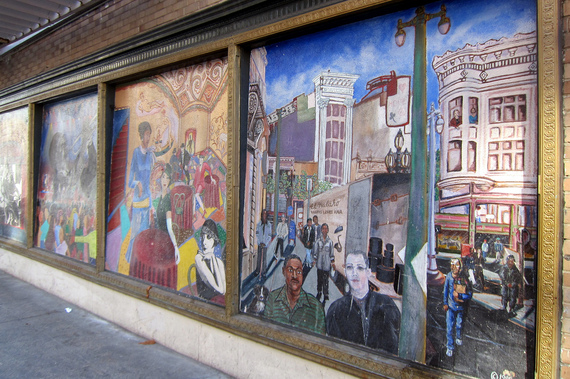Part 2 of a 3-part series
In my first post, I introduced the story of Myong, a refugee from Vietnam who was receiving counseling from the social service agency, Asian Neighborhood Design, which I ran in 1983. During what I thought was a great counseling session about Myong's housing situation, I noticed that her 15-year-old son had a very disgusted look on his face as he listened to my staff counsel his mother.
I thought his disgust was aimed at my young social worker, but it turned out he was disgusted with his mother. After, as we were leaving the building, Myong ran after us and angrily told us to never come back. From then on, she refused our help. This post shares Myong's perspective on what happened. We will share her son's point of view about the incident in the last of these three postings.
My social worker and I were stunned by Myong's change of mood between the end of the session and our exchange just outside the building. We were even more surprised by her refusal to have anything to do with us after that. We began asking her friends what they thought had happened.
They shared more background on Myong. Her husband had been killed in the Vietnam War, after which she made it to a Thai refugee camp with her three children in tow. Three people in her party died during the crossing to Thailand. After a couple years she was able to get passage with others on a boat to Hong Kong, fighting off pirates along the way.
Once in Hong Kong, she managed to get herself and her kids to San Francisco. She was obviously smart, resourceful, and determined, and clearly the authority figure and leader of her family. But in the three years she had been in the U.S., her parental authority had diminished and her older son had begun to rebel.
Myong shared with her friends that while she needed some of the information our social service counselors provided, her children were beginning to believe that, without our help, she couldn't make it and that she was not smart or resourceful. In addition, the ongoing put-downs her children heard at school and on TV about refugees and people of color were making them feel ashamed of her and their culture.
Right after we left Myong's apartment that day, Tae had called her "stupid." This dynamic had been going on for a while. She could see how following direction from professionals only confirmed his view of her. She resented that every counselor asked her to set goals, which sometimes were in conflict with one another, and then monitored her as if that would help. Yet she complied and was grateful, but just to be polite.
Her son joined some youth programs and would often contradict what she wanted him to do by saying that the youth counselors wouldn't agree or that "it wasn't done that way in America." None of the youth counselors from any of the programs ever talked to her or asked for her advice. The problem was that others, both the youth programs and the gangs, seemed to be able to offer more to her children than she could.
While she barely was able to put food on the table and pay rent, youth programs offered mentors, excursions, and scholarships. She also knew that Tae thought that being a part of a gang commanded respect and offered ways, legal or not, for him to earn money and buy what other kids seemed to have.
Some time after our last session with Myong, we learned that Tae had run away and joined a Chinatown gang. Her friends said that she was devastated and cried for days. She turned away from our program, and all other programs. Instead, she forged friendships with other families like hers, seeking help from those who had successfully navigated the systems she needed access to.
Spending time with those families not only helped her gain knowledge and examples of how to make things work for her in this country, but it also provided emotional support. This new community of friends gave her two younger children more of a sense of a village, the kind she had left behind in Vietnam. With this new village, she hoped to win Tae back.
As I learned more about Myong I came to realize that if we had wanted to be of help we should have learned more about her. This would have allowed us to recognize and honor her skills and her resourcefulness, especially in front of her kids. Instead, since her son was starting to get into trouble, we quietly assumed that she was probably not a good mother and did not know how to make good decisions.
This type of internal assessment makes programs feel more important and necessary. Sadly, most youth programs seldom prioritize getting to know the parents. If the kids have problems, programs assume to have the best solutions and replace some of the parental role.
The more I have learned about the hundreds of families I have tried to help in my 35 years in the social sector, the more I realize that most low-income parents or guardians should be approached with admiration and respect. Surviving in our worst neighborhoods with almost nothing takes an enormous amount of resourcefulness. I have also come to learn that rebuilding a sense of community with friends and peers seems to provide better and more sustainable solutions.
In the last posting of this series, I will share Tae's perspective of the incident.

